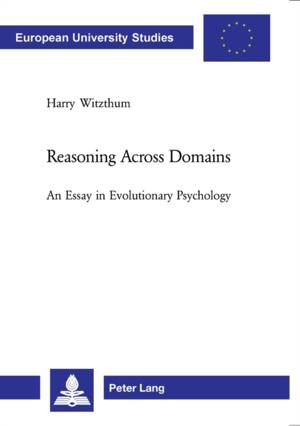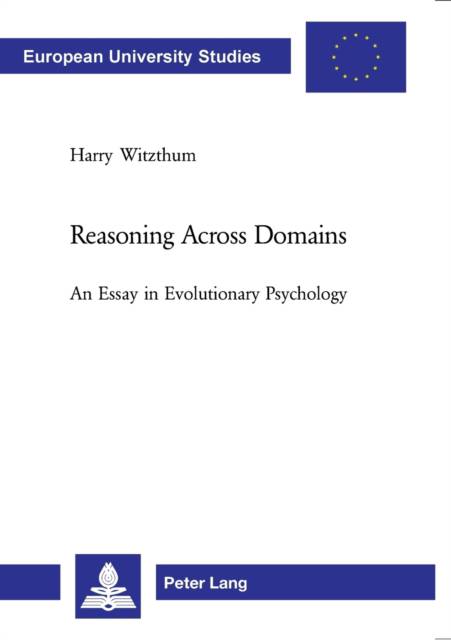
- Afhalen na 1 uur in een winkel met voorraad
- Gratis thuislevering in België vanaf € 30
- Ruim aanbod met 7 miljoen producten
- Afhalen na 1 uur in een winkel met voorraad
- Gratis thuislevering in België vanaf € 30
- Ruim aanbod met 7 miljoen producten
Zoeken
Reasoning Across Domains
An Essay in Evolutionary Psychology
Harry Witzthum
Paperback | Engels | Europäische Hochschulschriften / European University Studies / Publications Universitaires Européenn | nr. 693
€ 89,45
+ 178 punten
Omschrijving
Evolutionary psychology's ultimate goal is to understand the design of the human mind. It is a new approach in psychology, founded upon evolutionary theory and cognitive science. Evolutionary psychologists' insistence on evolutionary theory has given rise to both controversy and transformations in theoretical models of human cognition. It is still a minority position in the field of psychology, but evolutionary psychology's implications are far reaching.
This book examines the arguments put forth by evolutionary psychologists and the objections levelled against them by their critics. Can evolutionary psychology offer a promising strategy in psychology that should be taken seriously and which can be defended against its critics? That is one question this book investigates. But the book also proposes a new approach to tackle the evolution of general-purpose cognitive mechanisms, which is the main matter of dispute between traditional and evolutionary psychology. Is a credible evolutionary account of the development of general-purpose cognitive mechanisms possible? Evolutionary psychologists have scarcely addressed this question in their current research, this book proposes a new way of thinking about the question.
This book examines the arguments put forth by evolutionary psychologists and the objections levelled against them by their critics. Can evolutionary psychology offer a promising strategy in psychology that should be taken seriously and which can be defended against its critics? That is one question this book investigates. But the book also proposes a new approach to tackle the evolution of general-purpose cognitive mechanisms, which is the main matter of dispute between traditional and evolutionary psychology. Is a credible evolutionary account of the development of general-purpose cognitive mechanisms possible? Evolutionary psychologists have scarcely addressed this question in their current research, this book proposes a new way of thinking about the question.
Specificaties
Betrokkenen
- Auteur(s):
- Uitgeverij:
Inhoud
- Aantal bladzijden:
- 282
- Taal:
- Engels
- Reeks:
- Reeksnummer:
- nr. 693
Eigenschappen
- Productcode (EAN):
- 9783039109784
- Verschijningsdatum:
- 3/10/2006
- Uitvoering:
- Paperback
- Formaat:
- Trade paperback (VS)
- Afmetingen:
- 148 mm x 210 mm
- Gewicht:
- 340 g

Alleen bij Standaard Boekhandel
+ 178 punten op je klantenkaart van Standaard Boekhandel
Beoordelingen
We publiceren alleen reviews die voldoen aan de voorwaarden voor reviews. Bekijk onze voorwaarden voor reviews.











